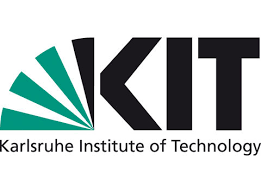Karlsruhe Institute of Technology: Build in a circular and sustainable way
The construction industry consumes large amounts of energy resources and produces tons of waste. At the Solar Decathlon Europe 21/22 university competition, students and researchers from the Karlsruhe Institute of Technology (KIT) want to show that the building sector is already compatible with a functioning circular economy. The interdisciplinary team “RoofKIT” is dedicated to building roofs as a previously unused space resource. After a two-year planning phase, construction of the demonstration unit on the Solar Campus in Wuppertal began on May 19, 2022.
How can socio-economically fair housing be created without destroying natural resources? How can the construction sector transform itself so that it does not further aggravate climate change? These and other questions are asked by students and employees from different departments of KIT in the “RoofKIT” team. “The city of today will be the resource for the city of tomorrow. This requires a new understanding of building,” says Professor Dirk Hebe, who heads the project together with Professor Andreas Wagner at the KIT Faculty of Architecture. “We have to rethink every constructive detail to prepare our future buildings for such a change.”
Pillars of sustainability as a basis
In order to demonstrate what this new type of building can look like, the team at the Solar Decathlon Europe 21/22 university competition is creating a concept for adding a storey to the roof of the Café ADA in Wuppertal. The design of the building is based on the three pillars of sustainability “ecology”, “economy” and “social issues”, to which RoofKIT has added the fourth pillar “aesthetics”. In the concept, the team presents prefabricated wooden modules that enable a fast, inexpensive and efficient construction process. For optimal use of space, they use flexible floor plans and a sharing economy concept. In addition, the structure uses 100 percent renewable energy, including solar panels on the building surfaces and in the backyard. “We are developing a kit that can be used anywhere and are also making new construction systems, materials and systems for generating energy,” explains Nadine Georgi, architecture student at KIT and member of RoofKIT. “We are convinced that we can achieve a socially, economically, ecologically and aesthetically sustainable future through new urban planning and architectural blueprints.”
Demonstration unit on the Solar Campus
Since the end of March 2022, RoofKIT has been working together with a carpentry and joinery in Reuthe, Austria, on the construction of the demonstration unit. The two-week construction phase on the Solar Campus started with the official groundbreaking yesterday, Thursday. In the subsequent two-week event phase, the houses are open to interested parties. Meanwhile, an international expert jury evaluates the overall concepts and demonstrators submitted. In ten categories such as sustainability, energy performance and innovation, the experts choose the respective winning teams in order to determine the overall winner at the end of the event phase. Following the competition, the Solar Campus in Wuppertal will be transformed into a “Living Lab” that will continue research at selected houses. RoofKIT plans

